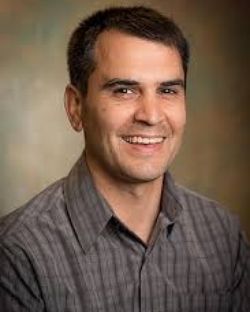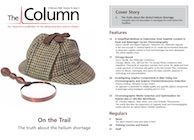LCGC Europe Announces 2020 HTC Innovation Award Winner
LCGC is proud to announce that Ryan T. Kelly is the winner of the 2020 HTC Innovation Award.

LCGC is proud to announce that Ryan T. Kelly is the winner of the 2020 HTC Innovation Award. Kelly was honoured at the International Symposium on Hyphenated Techniques in Chromatography and Separation Technology (HTC-16) in Ghent, Belgium, on 31 January 2020 for his outstanding contributions to the field of microcolumn separations involving considerable hyphenation.
“Kelly is truly an exceptional separation scientist. He has made outstanding contributions to the field of microcolumn separations, developing innovative hyphenated separation techniques,” said Mike Hennessy Jr, president and CEO of MJH Life Sciences, the parent company of LCGC Europe.
Kelly joined Brigham Young University, in Utah, USA, as an associate professor in 2018 in the Department of Chemistry and Biochemistry. He also serves as a scientist in the Environmental Molecular Sciences Laboratory at Pacific Northwest National Laboratory in Richland, Washington, USA.
His research is focused on the development of new technological solutions in separations, microfluidics, and molecular science for improved biochemical analyses. He has developed ultrasensitive nano liquid chromatography–mass spectrometry (LC–MS) using narrow-bore (20 µm) separation columns in combination with MS for bioanalysis, 2D-LC–MS, and LC-ion mobility spectrometry-MS for proteomic analysis of trace samples including single cells. He also develops microfluidic sample preparation strategies for these trace samples.
“I am truly honoured to receive the prestigious HTC Innovation Award. It is such a privilege to see the efforts of my research team in ‘nano LC–MS and multidimensional separations as applied to trace biological samples’ receive this recognition from experts in the field,” said Kelly.
In addition to Kelly’s research, he is an author of nearly 90 publications, with a combined 3300 citations, and an inventor of 11 issued and pending patents, several of which have been licensed and commercialized by companies, including: Bruker Corp., BaySpec Inc., and Ardara Technologies. His work has also been recognized with two R&D 100 Awards from R&D Magazine, a Federal Laboratory Consortium Award for Excellence in Technology Transfer, and the 2019 Georges Guiochon Faculty Fellowship Award from the HPLC Symposium.
While discussing the future Kelly described his team’s plans to “work on improving measurement sensitivity and proteome coverage for single cells through further improvements in sample processing, separations, and mass spectrometry.”
“We are also working to increase measurement throughput and to develop lower cost solutions for preparation and analysis of trace samples to facilitate broad dissemination of the technology,” continued Kelly.
For more information on HTC-16 or the HTC Innovation Award, please visit: https://kuleuvencongres.be/htc16

Measuring Vitamin K1 Concentrations in Dogs with Chronic Enteropathy Using LC–MS/MS
May 14th 2025A joint study between the University of Tennessee (Knoxville, Tennessee) and the University of Pennsylvania School of Veterinary Medicine (Philadelphia, Pennsylvania) compared directly measured vitamin K1 (vitK1) concentrations in healthy dogs and dogs with chronic enteropathy (CE) using liquid chromatography tandem mass spectrometry (LC–MS/MS); they also investigated whether supplementation of vitK1 in dogs with CE would significantly increase vitK1 concentrations.
HPLC 2025 Preview: Fundamentally Speaking (Part 2)
May 14th 2025Michael Lämmerhofer from the Institute of Pharmaceutical Sciences, University of Tübingen, Germany, spoke to JFK Huber Lecture Award winner of 2024 Torgny Fornstedt, professor in analytical chemistry and leader of the Fundamental Separation Science Group, Karlstad University, Sweden, about his pioneering work in high performance liquid chromatography (HPLC) with a focus on fundamentals, ion-pair chromatography, and oligonucleotide applications.

.png&w=3840&q=75)

.png&w=3840&q=75)



.png&w=3840&q=75)



.png&w=3840&q=75)










